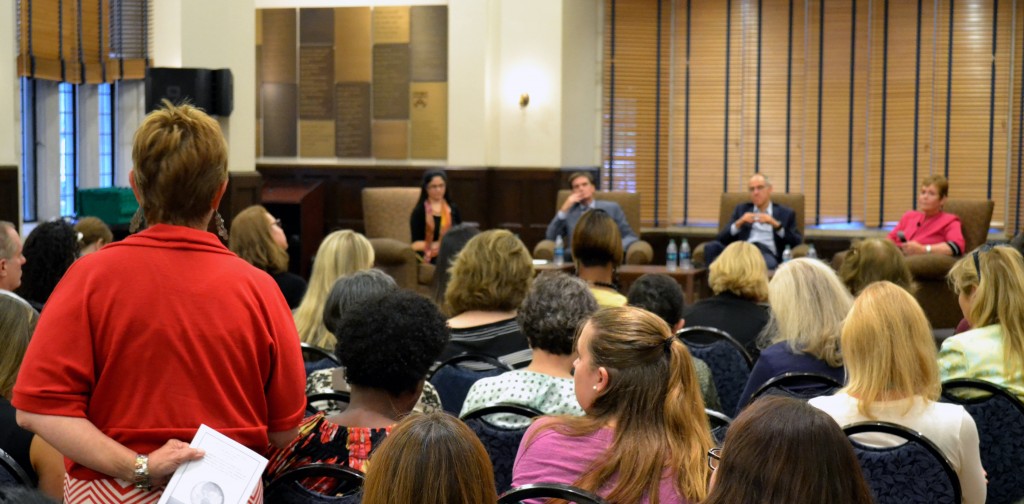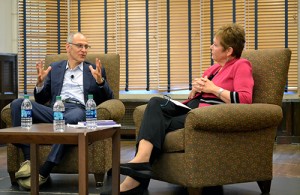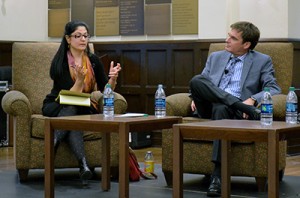
When facing their own mortality, people tend to reevaluate their top priority in life. Is it enough simply to exist? Or is a life without happiness or comfort worth the pain and suffering that comes with terminal illness?
This was one issue tackled by a panel of University of Pennsylvania medical experts during “Reimagining the End of Life,” moderated by health journalist Jackie Judd Wednesday afternoon.
“The end of life leads to lots of existential questions,” said Dr. Ezekiel Emanuel, Vice Provost for Global Initiatives and Chair of the Department of Medical Ethics and Health Policy at Penn.
For example: “Have I lived a meaningful life?”
“Think about what word you would put in there,” he told the crowd of more than 100. “The reason I use the word ‘meaningful’ is because it’s not about me.”
But for many patients, the top priority at the end of life isn’t complex, said Dr. Jason Karlawish, Co-Director of the Penn Memory Center and Professor of Medicine, Medical Ethics and Health Policy.
“When people perceive that their time is limited…you see consistently across studies…a focus on present pleasures,” he said. For some, that may be healthy hobbies like crossword puzzles; for others, it could be unhealthy habits from the past like smoking.
In his experience with the Penn Memory Center, Dr. Karlawish saw that many patients sought to organize their affairs well before the end was in sight.
“Seventy-five percent wanted help planning for the future,” said Dr. Karlawish, who has argued that this planning goes beyond physical health and includes financial planning he calls “wealth care.”
In many ways, the survival-focused efforts of healthcare late in life have taken humanity out of the death of humans, argued Dr. Salimah Meghani, Associate Professor in the Department of Biobehavioral Health Sciences.
“Death has become a medical event,” she said, referencing a report written by the Institute of Medicine Study Committee, of which she was a member.
She, like her fellow panelists, spoke in favor of palliative care for the elderly and seriously ill.
“We have evolved into almost a new species. We have lost what makes us human,” Dr. Meghani said.
Dr. Karlawish said society still has many hurdles ahead on the path towards proper end-of-life care, but noted the arc of history “is bending toward something better than what we have.”
“I’m beginning to see a change in the conversation on death and dying,” he said.
Dr. Meghani is also a member of the NewCourtland Center for Transitions and Health at the University of Pennsylvania School of Nursing, which held the event.

